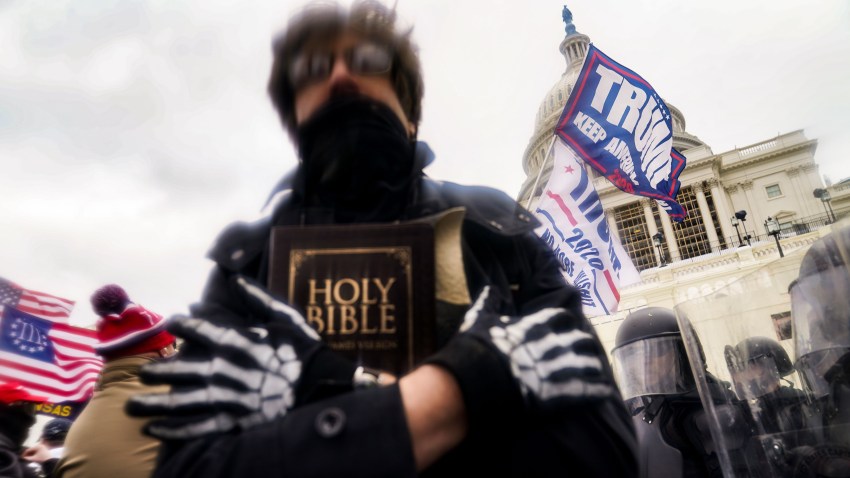On Jan. 8, 2023, thousands of right-wing followers of former Brazilian President Jair Bolsonaro descended on the country’s seat of government in Brasilia as part of a violent uprising whose goal was to unseat Bolsonaro’s successor, newly elected and inaugurated President Luiz Inacio Lula da Silva. Many journalists and commentators have noted the similarities between the insurrection in Brazil and the Jan. 6, 2021, attack on the U.S. Capitol building, as both were propelled by right-wing reactionaries spreading false claims about a “stolen” presidential election.
A less-examined common feature shared by the insurrections is that Christian nationalist ideology was a driving force behind them. According to scholars such as Joao Chaves of the Hispanic Theological Initiative, Christian nationalist leaders and networks played key roles in organizing both uprisings. And in both cases, rioters could be seen praying together, holding up Bibles and carrying crosses and signs emblazoned with Christian slogans.
Although Christian nationalism is not a new phenomenon, in recent years it has accompanied and contributed to the consolidation of power by politically conservative, illiberal and authoritarian political leaders and parties across the globe. At its most basic level, Christian nationalism is a conflation of adherents’ national and religious identities. In the U.S. context, it typically takes the form of a belief that the United States is a Christian nation and that therefore its culture, laws and politics should reflect Christian beliefs. The sociologists Andrew Whitehead and Samuel Perry, who have studied the movement’s ideology and goals, contend that “Christian nationalism fights to preserve a particular kind of social order, an order in which everyone—Christians and non-Christians, native-born and immigrants, whites and minorities, men and women—recognizes their ‘proper’ place in society.”

